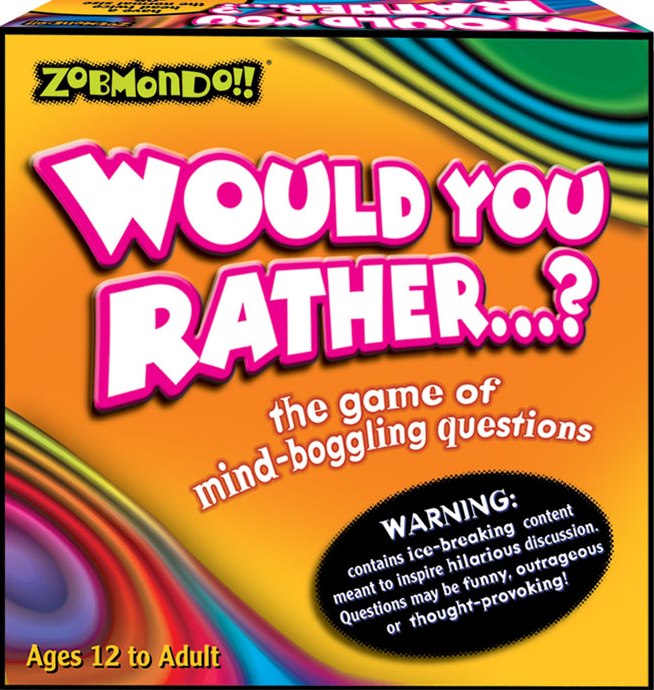Entries from April 1, 2010 - April 30, 2010
This Court's Getting a Little Tired of Defendant's Motions for Reconsideration
In Adidas America, Inc. v. Calmese, the District of Oregon denied the pro se defendant’s motion for reconsideration. In fact, it’s getting a little tired of his motions.
The introduction to the court’s order says it all:
“For the reasons that follow, the Court DENIES Defendant’s Second Motion for Leave to File a Third Motion for Reconsideration and further ORDERS Defendant not to make, file, or seek leave to file any additional motions with respect to any of the rulings, opinions, or orders addressed in this Order or related to the Court’s adoption of Magistrate Judge Stewart’s Amended Findings and Recommendation in this matter and ORDERS Defendant not to file any motion to reconsider this Opinion and Order.”
I guess the third time’s not a charm.
The court denied Adidas’ motion for sanctions but cautioned defendant Michael Calmese that failure to abide by its order could result in the court’s striking his pleadings, finding him in default, and allowing Adidas to pursue the relief it seeks without his having any additional opportunity to defend himself in the case.
The case cite is Adidas America, Inc. v. Calmese, 2010 WL 1641161, No. 08-91 (D. Or. April 20, 2010).
Ninth Circuit Finds "Would You Rather?" Not Descriptive as a Matter of Law
 Plaintiff Zobmondo’s WOULD YOU RATHER …? trademark
Plaintiff Zobmondo’s WOULD YOU RATHER …? trademark
By the time of suit, both plaintiff and defendant had sold millions of dollars worth of competing books and board games under similar WOULD YOU RATHER? trademarks.
In 2006, plaintiff Zobmondo Entertainment, LLC, sued Falls Media, LLC, in the Central District of California for trade dress infringement. Thereafter, Falls Media sued Zobmondo in the Southern District of New York for infringement of its registered trademark. Zobmondo counterclaimed for cancellation of Falls Media’s registration. The cases were then consolidated in the Central District of California.
On cross-motions for summary judgment, the court found Falls Media’s mark was merely descriptive and that no rational juror would conclude that it had established secondary meaning. Therefore, it granted Zobmondo’s motion on the ground that Falls Media’s mark was not protectable.
Falls Media appealed.
The Ninth Circuit found the district court’s decision was wrong under the circuit’s “imagination test.”
“We cannot look the entire mark up in a dictionary; there is no literal meaning of the ‘WOULD YOU RATHER … ?’ phrase, given that the words precede an ellipse; one may infer that there is a question, but only imagination can tell us that the question will serve up a bizarre or humorous choice. On the one hand, consumers who already understand the phrase ‘WOULD YOU RATHER … ?’ to refer specifically to a game of questions involving bizarre or humorous choices might not consider the mark very suggestive as the name of a board game, but to consumers who do not share such an understanding, ‘WOULD YOU RATHER … ?’ is simply the first three words of an open-ended question. For those consumers, the mark ‘WOULD YOU RATHER … ?’ may not ‘describe’ anything, except that a question is asked, and may indeed require imagination and multistage reasoning to understand the mark’s relationship to the game to which it is affixed. Given the record before us, which lacks comprehensive consumer surveys, we cannot say with confidence precisely what consumers will understand the phrase ‘WOULD YOU RATHER … ?’ to mean, nor are we confident that our own understanding of the phrase is an adequate substitute.”
The court also found that Falls Media’s federal registration accorded it a “strong presumption” that its mark is inherently distinctive.
Therefore, the court remanded the case for trial.
Zobmondo Entertainment, LLC v. Falls Media, LLC, __ F.3d. __, 2010 WL 1644256, No. 08-56831 (9th Cir. April 26, 2010).
Court Finds No Trademark Acquiescence Through "Apparent Authority" Theory
 In Scentsy, Inc. v. deDisse, wickless candle maker Scentsy filed a trademark infringement suit in the District of Idaho. It claimed its former independent sales person, Mary deDisse, melted down its candle wax, repackaged it in smaller containers, affixed Scentsy’s logo, and sold the altered product to Scentsy’s authorized sales persons for resale. It sought a preliminary injunction enjoining this practice.
In Scentsy, Inc. v. deDisse, wickless candle maker Scentsy filed a trademark infringement suit in the District of Idaho. It claimed its former independent sales person, Mary deDisse, melted down its candle wax, repackaged it in smaller containers, affixed Scentsy’s logo, and sold the altered product to Scentsy’s authorized sales persons for resale. It sought a preliminary injunction enjoining this practice.
Ms. deDisse argued that Scentsy gave her permission to use its mark through its independent consultants, who had “apparent authority” to authorize her use of the Scentsy logo on altered and repackaged product. She argued its having done so amounted to acquiescence.
The court didn’t buy it.
It found Scentsy’s independent sales consultant agreement prohibits its sales persons from repackaging, re-labeling, or altering the labeling on Scentsy products — which as a former Scentsy sales person Ms. deDisse knew or should have known. The court also found that Scentsy dispelled any impression that it approved of deDisse’s conduct by sending her three cease-and-desist letters before filing suit.
“The promptness and frequency of Scentsy’s objections demonstrate Scentsy’s vigilance in protecting its trademark rights — not its acquiescence to deDisse’s use,” the court found.
It noted that acquiescence is a defense to trademark infringement, but Ms. deDisse did not show it here.
It concluded that “deDisse’s attempt to rely on emails from Scentsy consultants to establish consent is unreasonable in light of Scentsy’s formal and repeated objections to deDisse’s use of its mark. Therefore, Scentsy has shown it is likely to prevail on the merits of its Lanham Act claims.”
It granted Scentsy’s motion.
The case cite is Scentsy, Inc. v. deDisse, 2010 WL 1579688, No. 09-496 (D. Idaho April 19, 2010).
Is "Law Society" Generic for Bar Associations?
In 1999, S.H. Inc. registered lawsociety.com as a domain name.
The Law Society is one of the U.K.’s bar associations. It describes itself as the “representative and regulatory body for the solicitors’ branch of the legal profession in England and Wales.”
In 2009, The Law Society filed a complaint with the World Intellectual Property Organization under the Uniform Domain Name Dispute Resolution Policy. A three-member panel agreed with the complaint and ordered registrar eNom, Inc., to transfer the domain name to The Law Society.
To avoid the transfer, S.H. filed suit in February in the Western District seeking a declaration that its registration does not violate the Anticybersquatting Consumer Protection Act. It asserts the mark is generic.
The Law Society has not yet answered S.H.’s complaint.
Nor has either party filed a joint status report. On April 22, Western District Judge Marsha Pechman ordered the parties to do so or the court will dismiss the case for failure to prosecute.
The case cite is S.H. Inc. v. The Law Society, No. 10-00248 (W.D. Wash.).
Seven Year Delay, Coupled with Witness' Death, Leads to Dismissal for Laches
In Matsunoki Group, Inc. v. Timberwork Oregon, Inc., plaintiff home builder claimed that defendant home builder infringed its HAIKU HOUSES trademark by displaying a confusingly similar mark on its Web site.
The problem was, plaintiff first asserted those claims in 2001, but filed suit in 2008.
Defendant argued that plaintiff’s claims were barred by laches, which bars an otherwise valid claim when a plaintiff’s unreasonable delay in enforcing its rights unfairly prejudices the defendant.
The Northern District of California found that’s what happened here. In particular, it found a witness’ death and the defendant’s reliance on the continued use of its mark constituted undisputed evidence of unfair prejudice. On April 16, therefore, it dismissed plaintiff’s claims on summary judgment.
“‘Evidentiary prejudice includes such things as lost, stale, or degraded evidence, or witnesses whose memories have faded or who have died,’” the court found. “One of the most important witnesses in this case, Gordon Steen, died in 2004. Matsunoki asserts that Steen authored the intellectual property at issue in this case, an assertion Defendants strongly dispute. Without the opportunity to cross examine Steen, Defendants’ ability to defend themselves will be hamstrung. Steen is clearly the best source for information about the manner in which the intellectual property in question was authored and transferred. If Matsunoki had not delayed in bringing the suit, it could have tried this case before Steen’s death, or his testimony could have at least been preserved in some fashion. Therefore, the Court concludes that Matsunoki’s delay has caused Defendants evidentiary prejudice.
“A defendant may demonstrate expectation prejudice ‘by showing that it took actions or suffered consequences that it would not have, had the plaintiff brought suit promptly.’ After Matsunoki did not respond to Timberwork’s February 27, 2001 letter asserting Timberwork’s rights to the intellectual property, Timberwork continued to use the mark in its catalogs, promotional material and websites and has built its business in reliance on the marks. It would be inequitable to permit Matsunoki to wait seven years before bringing suit and then profit from Defendants’ successes.”
The case cite is Matsunoki Group, Inc. v. Timberwork Oregon, Inc., No. 08-04078, 2010 WL 1532351 (N.D. Cal. April 16, 2010).